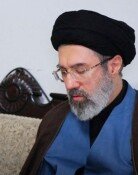‘Joint military drills are negotiable with N. Korea,’ say Suh Wook
‘Joint military drills are negotiable with N. Korea,’ say Suh Wook
Posted January. 29, 2021 07:31,
Updated January. 29, 2021 07:31
‘Joint U.S.-ROK military drills are negotiable with N. Korea,’ say Suh Wook
“With the intention of carrying out joint U.S.-ROK military drills scheduled early March, the South Korean government is in close coordination with the Combined Forces Command (CFC) to determine execution plans,” said South Korean Defense Minister Suh Wook on Wednesday in a press conference for the new year. He added that the two nations may make the best use of operational strategies by dividing cells where drills are executed or grouping troops with the pandemic of COVID-19 taken into account. “We already made significant adjustments to the drills in the latter half of last year.” His remarks seemingly imply a possibility that the upcoming joint exercises in the first half of this year will be scaled down due to the spread of COVID-19.
Asked about South Korean President Moon Jae-in’s remarks on a possible discussion with North Korea on the joint military drills with the United States, Minister Suh agreed that such talks with the North can happen, explaining that President Moon mentioned a possibility just in principle. “Since the Inter-Korean Basic Agreement was signed off in 1991, it has been agreed between the two parties that a joint military committee between the two Koreas can put various issues including joint U.S.-ROK military exercises on the discussion table,” he said. North Korean leader Kim Jong Un in the ruling Workers’ Party eighth congress held early this month called on the South to cancel the execution of joint drills between Washington and Seoul.
Minister Suh reaffirmed an early transfer of wartime operational control (OPCON), saying, “I consider that significant progress should be made in the OPCON transfer process during my tenure.” His message may intend to not only carry out the joint military drills scheduled in March but also run at full speed so that the two nations can complete the second phase test of full operational capability (FOC) of a combined forces command that will be formed under the leadership of Seoul after OPCON transfer happens; and determine a target year for OPCON transfer within this year.
The South Korean defense minister admitted that there is a minor gap in how Washington and Seoul view the issue, adding that the former wants to get it started when conditions are fully met while the latter expects to see it happen sooner or later. The two nations are in discussions on their different views, said the minister. He may imply that the South Korean government will convince its U.S. counterpart that a reduced joint drill plan does not affect the feasibility of the FOC test.
Sang-Ho Yun ysh1005@donga.com







